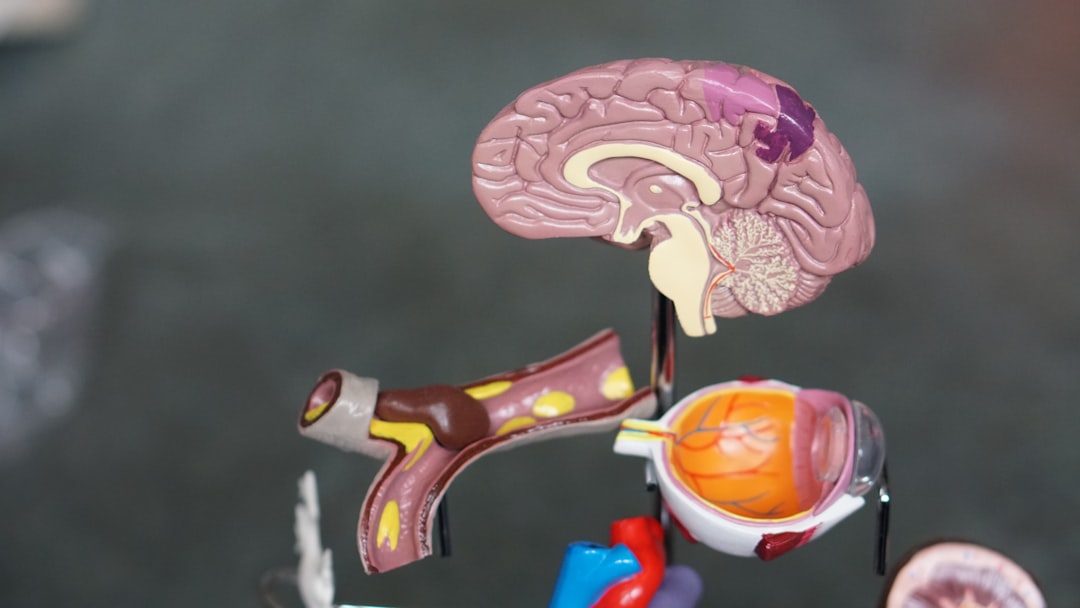Pregnancy Brain Fog: Why It Happens and Tips to Stay Sharp
Ever put your phone in the refrigerator or forgotten a word mid-sentence during pregnancy? You’re not alone. “Pregnancy brain” or “mommy brain” isn’t just a myth—it’s a scientifically documented phenomenon affecting approximately 80% of expectant mothers who notice changes in memory, focus, or thinking during pregnancy or after birth.
The Science Behind Pregnancy Brain Fog
What’s actually happening in your brain during pregnancy? Recent research offers fascinating insights into these cognitive changes.

Real Brain Changes
A systematic review analyzing 31 studies with over 1,500 pregnant women found that pregnancy modestly affects verbal memory and attention compared to non-pregnant women. These cognitive changes aren’t just subjective feelings—they’re backed by neuroimaging evidence.
Research published in Nature Communications revealed that gray matter volume follows a U-shaped trajectory, dipping in late pregnancy and partially recovering during the postpartum period. Another study in Nature Neuroscience found that these structural changes unfold week by week throughout pregnancy.
In fact, gray matter volume can be reduced by up to 4.9% during first pregnancy, affecting 94% of the brain. Most prominent changes occur in the Default Mode and Frontoparietal Networks—areas critical for focus and attention.
Hormonal Connections
Those cognitive changes are closely linked to the hormonal roller coaster of pregnancy. Research shows that fluctuations in estrogens, particularly estriol-3-sulfate and estrone-sulfate, drive many of these changes. Greater increases and subsequent decreases in estrogen levels are associated with greater decrease and recovery of brain gray matter volume.
Beyond Just Forgetfulness
Pregnancy brain isn’t limited to occasional forgetfulness. It can affect:
- Verbal memory
- Information processing
- Executive functioning
- Attention span
- Task-switching abilities
The most dramatic changes occur in brain regions linked to social cognition—perhaps nature’s way of preparing you for the intense social bonding required with your newborn.
7 Practical Strategies to Combat Pregnancy Brain Fog
While pregnancy brain is normal, these evidence-based strategies can help you stay sharp:
1. Prioritize Quality Sleep
Sleep disruption is a major contributor to cognitive fog during pregnancy. Going to bed at the same time each night and taking short daytime naps can significantly improve cognitive function.
For more pregnancy sleep support, check out our guide on better sleep during pregnancy.
2. Create External Memory Systems
Don’t rely on your memory alone. Use digital calendars with alerts for appointments, place sticky notes in strategic locations, set smartphone reminders for important tasks, and keep a dedicated pregnancy notebook for tracking thoughts and to-dos. These external memory aids can compensate for temporary cognitive changes.
3. Simplify Your Life
This isn’t the time to juggle multiple complex projects. Ask for help when needed, delegate tasks when possible, use shortcuts for household chores, and lower your perfectionism standards. Reducing your cognitive load allows your brain to focus on what’s truly important.
4. Fuel Your Brain
What you eat affects how you think. Focus on omega-3 rich foods like fatty fish, protein sources including eggs and beans, and iron-rich foods to combat pregnancy-related anemia. Staying well-hydrated throughout the day is also crucial for optimal brain function during pregnancy.
5. Keep Moving
Even light exercise improves blood flow to the brain. Aim for daily walks in fresh air, prenatal yoga, swimming (excellent for reducing physical discomfort while staying active), or gentle stretching throughout the day. Physical activity doesn’t need to be intense to benefit your cognitive function.

6. Practice Mindfulness
Research suggests mindfulness can improve both memory and reduce stress. Try brief daily meditation sessions, focused breathing exercises, present-moment awareness practices, or pregnancy-specific guided visualizations. Just a few minutes of mindfulness daily can make a difference in mental clarity.
7. Connect With Other Expectant Mothers
Sharing experiences and strategies can provide both practical tips and emotional support. Join pregnancy support groups, connect with other parents-to-be, share coping strategies, and normalize your experience through connection. Sometimes knowing you’re not alone in your experience is the most powerful support.
When to Talk to Your Doctor
While cognitive changes during pregnancy are normal, certain symptoms warrant medical attention:
- Severe memory problems that significantly impact daily functioning
- Cognitive changes accompanied by headaches, vision changes, or swelling
- Symptoms of depression or anxiety alongside cognitive difficulties
- Cognitive symptoms that worsen suddenly or dramatically
Partners Can Help Too
If you’re the partner of someone experiencing pregnancy brain fog:
- Be patient and understanding—these changes are real and frustrating
- Help with organization by tracking appointments and tasks
- Show empathy without making jokes about symptoms
- Support healthy routines including rest, nutrition, and activity
Your understanding and practical support can make a world of difference during this challenging time.
The Silver Lining
While pregnancy brain fog can be frustrating, remember that it’s temporary and serves an evolutionary purpose. Those brain changes are preparing you for the demands of motherhood by heightening your social awareness and emotional responsiveness.
Research reveals that pregnancy-related brain changes may actually optimize your brain for motherhood, enhancing your ability to bond with and protect your baby. Some changes, like cortical thickness reductions, can persist for up to two years postpartum—coinciding with the period when your child needs the most intensive care.
So the next time you can’t remember where you parked or what you came into a room for, remind yourself: your brain isn’t functioning worse—it’s reprioritizing for one of life’s most important roles.
With the right strategies, you can navigate pregnancy brain fog while preparing for this transformative life chapter. Your brain is doing exactly what it’s supposed to do—getting ready for the amazing journey of motherhood ahead.

